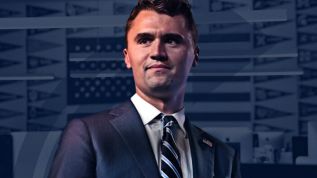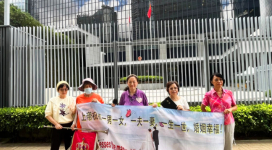The Lutheran World Federation, the world’s largest denominational umbrella with over 66 million Lutherans, is facing a financial crisis, the LWF treasurer reported to the board members on September 2, 2004.
Mr. Peter Stoll, who made his presentation during the second day of the annual LWF council, explained that a “further deficit is expected in the LWF budget,” if things do not change through improved efficiencies or administrative streamlining.
Stoll proposed three strategies in improving the situation: cut down costs through reducing its aims and goals, and thereby let go of several of its staff members; improve efficiency and keep the staff; increase income through member pledges and membership fees.
During a press conference held after the treasurer’s address, reporters asked wither the financial dilemma was linked to “donor fatigue” among churches that are associated with other ecumenical or confessional bodies. Stoll answered that many churches “saw their contribution to the ecumenical scene as a whole, thus they would have to balance their contribution to these bodies.”
Stoll also explained that the membership fees for each respective nation in the LWF are determined by the church membership size and the Gross National Product of the respective country; the larger the church and the richer the country, the higher the membership price.
At that end, Stoll mentioned that some poorer churches in the ‘South’ were paying more than their allocated fees, while some churches in the ‘North’ did not meet up to their expected fee. Stoll specifically pointed to the Nordic Churches as an example of the latter.
“In the case of some of the Nordic churches, the complexity of the church-state structure was a major contributing factor in the under-payment of fair membership fees,” he said.
Meanwhile, Stoll did not rule out a chance that other organizations, such as the European Union (EU) might also fund the LWF. However, he told the Council to be “realistic in its expectations” since there are very strict regulations on the allocation of EU funding.
In relation to streamlining operations and making administration more efficient, the LWF staff suggested the use of English as the working language of the Federation. However, a number of speakers argued against the proposal, because the “variety of languages spoken at LWF gatherings reflected the diversity of the communion.” Therefore, if the Federation prioritizes English, it would give “English speaking countries a privileged position over those of other tongues,” and would ultimately make the LWF “non-inclusive.” In the current LWF, English, German, French and Spanish are all considered official languages.
In terms of investment, the director of the LWF Office for Finance and Administration, Mr Pauli Rantanen, explained that the Federation invested with companies that “both performed well and were socially responsible.” These “socially responsible” companies include those committed to environmental protection, product safety and recycling, and or human rights, gender equality, reasonable working conditions and the prevention of child labor.
Ultimately, Stoll explained that everything is a matter of priority setting.






![[Exclusive] Escaping Extreme Poverty: The True Story of a Ugandan Girl’s Transformed Life](https://www.gospelherald.com/media/cache/thumbnail/7/23/72324sp_273w_150h_1x_1y.jpg)
